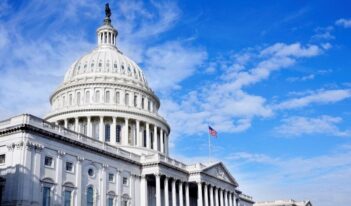
New regulations governing student debt leave too much power concentrated with Education officials.
After Corinthian Colleges—a network of for-profit higher-education campuses—declared bankruptcy last year, former Corinthian students flooded the U.S. Department of Education with applications for debt cancellation. In response, the Department scrambled to initiate two processes. First, it created an ad hoc procedure to deal directly with these students’ applications. As I argued in the second installment of this series, this process appeared to grant students relief yet employed several needless technicalities to restrict actual debt cancellation. At the same time, the Department also initiated a rulemaking to create a more formal process to deal with future applications from students seeking to defend themselves from debt repayment obligations. The final regulations were published on November 1.
One improvement that the new regulations appear to offer is a group relief process for students holding debts from colleges that, after investigation, the Department concludes have defrauded enrollees systematically. The Department has required former Corinthian students to apply for relief individually even after officials had confirmed the fraud carried out by the Corinthian institution overall. The new regulations allow for automatic cancellation of the debts of students of such institutions, rather than forcing each student to plead a case individually.
In an essay previously published on The Regulatory Review, Professors Adam Zimmerman and Michael Sant’Ambrogio praised the group process, a core aspect of the now-final regulations. I agree with Zimmerman and Sant’Ambrogio’s observation that, at least on paper, the group process offers a better option than the existing practice. Unfortunately, however, what the Education Department seems to grant in the headlines of the new rules, it takes away in the fine print. A close reading of the new regulations reveals a Department more focused on protecting its own bottom line than protecting the students it exists to serve.
A deep problem underlies the new group-based process: the Department, in its sole discretion, retains exclusive authority to initiate a group process. The new regulations lack any formal procedure for students, advocates, enforcement agencies, or other interested parties to argue for group treatment. Such unchecked discretion makes the decision to use this process political—a lesson a Democratic-run Department is now learning the hard way with the unexpected electoral victory of Donald Trump. Even worse, the decisions made by Education officials as to whether or not to initiate a group process lack transparency. The Department offers no public justifications for its decision, let alone an appeals process.
Zimmerman and Sant’Ambrogio characterize the Department’s authority over the group process as akin to a technical shortcoming that could be tweaked by neutral experts in good faith. But, to use a hackneyed phrase: The unchecked discretion of the Department is a feature, not a bug, of the new process. Granting itself such prosecutorial discretion with respect to the group process makes sense when we remember that the Department maintains its own balance sheet through student debt collection. That the Department did not foresee doing so would also empower politically opposed officials to limit relief all the more is a tragic irony.
Even the text of the rules reveals the Department’s motivations: “fiscal impact” is one of the optional factors that the Department will consider when determining whether to initiate a group-based process. In other words, if a college engages in fraud so widespread that granting debt relief would reduce the Department’s assets dramatically, officials can opt out of offering a group process—leaving students no option but to appeal for debt relief on an individual basis. Requiring individual appeals limits debt cancellation because few students will know how to initiate a proceeding. In this way, the new regulations seem to extend former U.S. Attorney General Eric Holder’s “too big to jail” policy from large financial institutions to the Education Department itself.
Consider also how the new regulations treat approximately 40 percent of the student debtor population—that is, those who hold loans under the Federal Family Education Loan Program (FFEL). Until these regulations had been issued, the Department had refused to deal with FFEL borrowers—it claimed it did not even have authority to stop guaranty agencies from garnishing these debtors’ EITC benefits. The new regulations purport to end tax credit garnishments. But they also disqualify FFEL borrowers from the benefits of automatic group discharges. Instead, all individual FFEL borrowers who have experienced wrongdoing at the hands of their respective schools face an additional administrative hurdle; individually, each student must consolidate their FFEL loans into Direct Loans and hope that Education officials will rule in their favor on the Direct Loans.
As with the failures of the group process more generally, my experience working with the Corinthian students who appealed for debt cancellation indicates that requiring individual applications offers the Department a sure path to limiting the relief that they actually grant. Many FFEL borrowers have the additional problem that other student loan regulations prohibit them from consolidating at all. These unnecessary obstacles violate the longstanding policy that FFEL and federal direct loans be treated equally. The Department has never before required consolidation to grant discharges of FFEL loans under other discharge authorities.
As discussed earlier in this series, the Department did not need to issue new regulations to give itself the authority to grant automatic group discharges in the case of systemic fraud. Nothing in the old regulations prevented it. That the group authority, under the Department’s discretion, now exists on paper makes it only marginally more likely that this authority will be used. Changing the text of the regulations does not itself change the political dynamics surrounding them.
Unless the people in charge of determining whether students receive debt relief cease to put collecting those students’ debts first, we should expect even the most sweeping debt-cancellation authorities to be artificially restricted or even ignored outright. Currently, the Department’s budgetary imperatives override students’ imperatives for justice. If student interests actually become the priority, those defrauded by for-profit colleges could finally find relief from their unjustifiable burdens. If the priorities shift, we could begin to imagine how the Department of Education could use its more expansive debt-cancellation authorities to relieve the unjust burdens many more students currently face.
This essay is part of a four-part series, The Department of Education’s Power to Cancel Student Debt.




